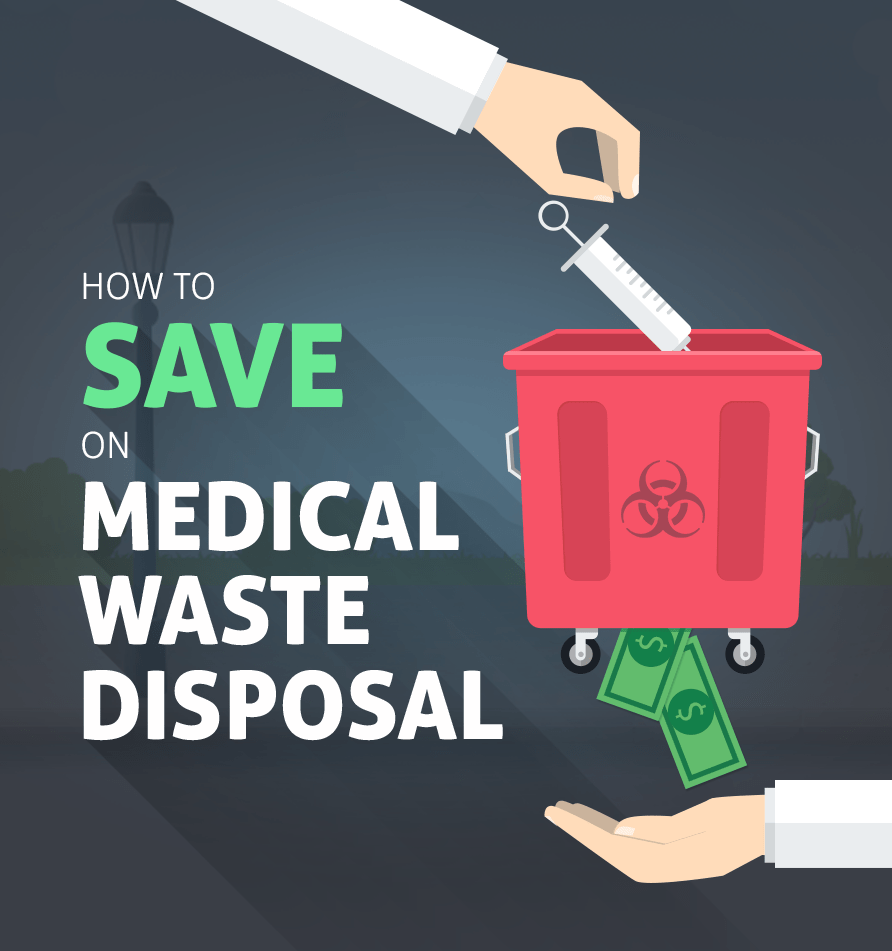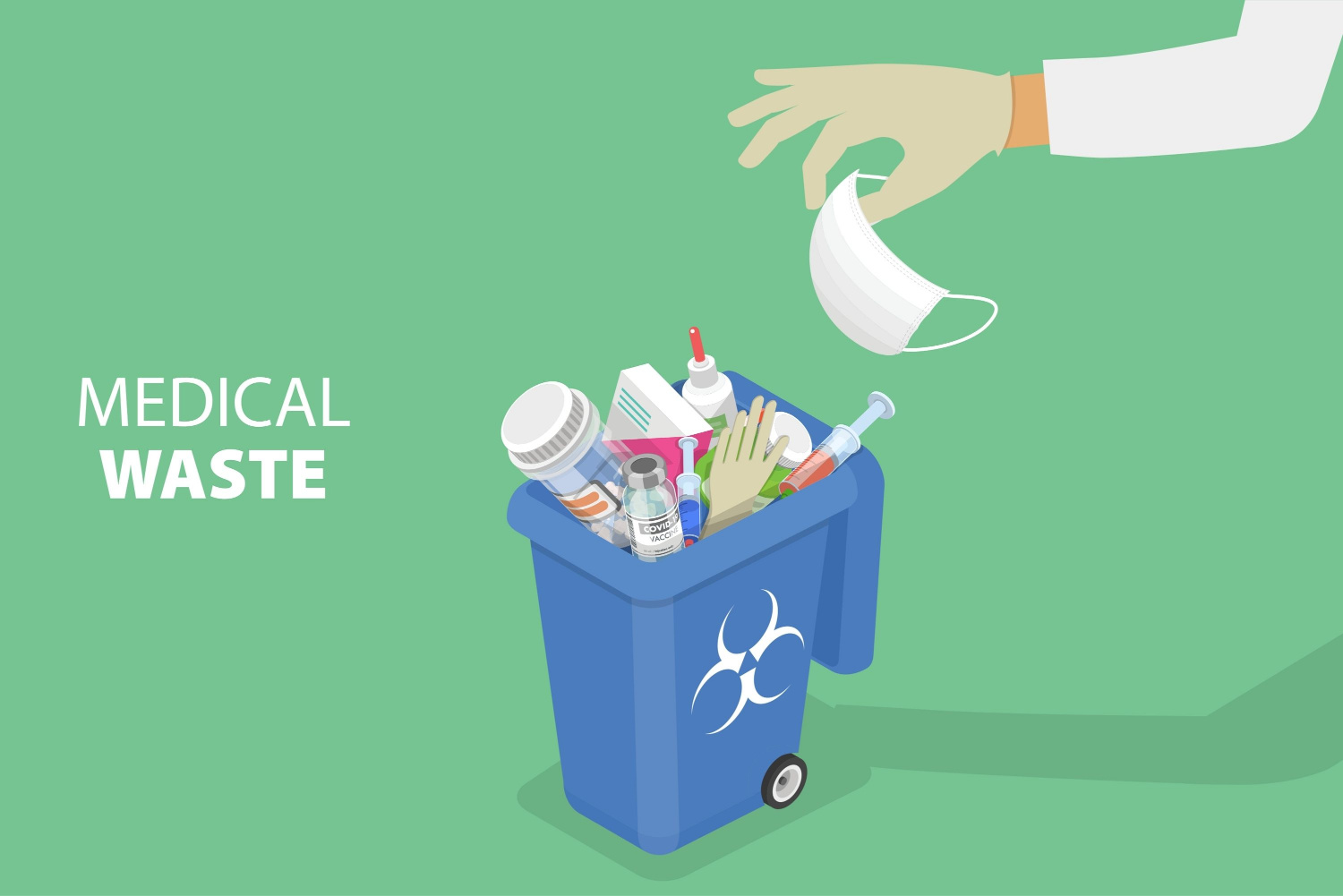Ensuring Safe Handling and Disposal of Medical Waste
Guaranteeing safe handling and disposal of medical waste is of paramount relevance in medical care setups. Incorrect management of clinical waste can present significant dangers to the environment, public health, and medical care employees. In this introduction, we will discover the value of appropriate clinical waste monitoring, the dangers associated with inappropriate handling and disposal, as well as the guidelines and strategies that can be applied to guarantee its safe disposal.
Relevance of Appropriate Medical Waste Monitoring
Appropriate medical waste monitoring is of utmost significance in guaranteeing the safety and health of medical care specialists, individuals, and the general public. Clinical waste refers to any type of waste generated by health care facilities during the medical diagnosis, treatment, or booster shot of animals or people. This waste can pose severe health and wellness dangers if not taken care of and dealt with effectively.
One of the key reasons why correct medical waste monitoring is essential is to avoid the spread of infectious illness. Clinical waste, such as used needles, polluted dressings, and organic products, can carry damaging virus. If not managed and disposed of properly, these microorganisms can be sent to healthcare workers, individuals, waste trainers, and also the public, resulting in the prospective episode of conditions.
In addition, correct medical waste administration assists secure the setting - medical waste removal. Medical waste includes harmful products, consisting of chemicals, drugs, and contaminated materials. When not taken care of suitably, these substances can infect dirt, water bodies, and the air, posing a significant risk to communities and public health and wellness
Moreover, efficient medical waste management guarantees compliance with neighborhood regulations and international standards. Governments and regulatory bodies have actually developed protocols and standards to make certain the secure handling, storage space, transportation, and disposal of medical waste. Following these guidelines is important to stay clear of legal consequences and maintain the online reputation and reliability of healthcare centers.
Dangers of Improper Handling and Disposal

Individuals can additionally be exposed to these infectious illness if medical waste is not effectively gotten rid of. For example, if infected needles or other sharps are not gotten rid of in assigned puncture-proof containers, they may mistakenly puncture people, bring about possible infections. If medical waste is not set apart correctly, there is a threat of cross-contamination between different kinds of waste, more raising the opportunities of disease transmission.
Incorrect disposal of clinical waste can additionally have detrimental results on the setting and the general public. If medical waste is not dealt with and disposed of appropriately, it can infect water sources, dirt, and air, bring about the spread of illness and pollutants. This can have long-term consequences on communities and public health.
Standards for Safe Handling of Medical Waste
Carrying out efficient protocols for the secure handling of medical waste is important in ensuring the security of healthcare specialists, clients, and the general public. These standards are vital in reducing the risks linked with the handling and disposal of clinical waste, such as infections, injuries, and environmental pollution.
First and foremost, healthcare facilities must establish a comprehensive waste administration plan that sticks to local, nationwide, and international guidelines. This plan ought to consist of clear instructions on waste partition, product packaging, labeling, storage, and transport. It is crucial to divide different sorts of waste, such as sharps, transmittable materials, pharmaceuticals, and non-hazardous waste, to stop cross-contamination and promote safe disposal.
Furthermore, medical care personnel should get extensive training on correct waste handling techniques. They ought to be informed on the prospective threats of clinical waste, the appropriate use individual safety tools (PPE), and the correct procedures for managing, transporting, and taking care of different kinds of waste.
Additionally, health care facilities must regularly keep track of and audit their waste administration techniques to make certain conformity with standards. This consists of performing regular evaluations, evaluating waste handling procedures, and offering feedback and training to team member.
Effective Strategies for Waste Disposal
To make certain Extra resources the risk-free handling and disposal of medical waste, it is necessary to employ effective strategies for garbage disposal. Clinical waste can present considerable risks to public health and the atmosphere if not dealt with and thrown away appropriately. Health care facilities and waste monitoring organizations have to carry out suitable strategies to minimize these dangers.
One efficient technique for garbage disposal is partition. It includes dividing various sorts of clinical waste based on their features. Segregation enables the correct treatment and disposal of each waste category, minimizing the potential for contamination or injury. Health care facilities must provide clear standards and training to employee on how to set apart waste correctly.

Furthermore, healthcare facilities ought to work together with qualified waste management companies to ensure proper disposal of medical waste. These business have the know-how and tools called for to securely get rid of and handle of clinical waste in conformity with laws and ideal techniques.
Training and Education for Medical Care Professionals
Healthcare professionals play a vital duty in guaranteeing the safe handling and disposal of medical waste through comprehensive training and education. It is essential for healthcare service providers to have a deep understanding of the prospective risks related to clinical waste and the correct procedures for its administration. By receiving correct training, medical care experts can reduce the potential transmission of infectious conditions, stop environmental contamination, and protect both themselves and the basic public.

Additionally, training programs need to emphasize using individual protective devices (PPE) and correct hand hygiene techniques when taking care of clinical waste. medical waste disposal. Medical care professionals must recognize how to appropriately use and get rid of of PPE to protect themselves from prospective exposure to hazardous materials. They must likewise be enlightened on the relevance of routine handwashing and the proper use hand sanitizers to minimize the spread of transmittable conditions
Continuing education and normal updates on medical waste monitoring methods are essential for medical care experts. As guidelines and laws progress, it is necessary to maintain doctor informed regarding any kind of changes in methods and best methods. This will certainly make sure that they remain current and keep a high standard of safety in dealing with and getting rid of of clinical waste.
Verdict
Finally, proper handling and disposal of medical waste is vital to make certain the safety and security of healthcare professionals, patients, and the environment. Neglecting to follow guidelines and regulations can lead to numerous threats and hazards. Executing effective strategies for waste disposal and giving ideal training and education for medical care specialists are vital in maintaining a safe healthcare setting. By sticking to these methods, we can mitigate the possible threats connected with clinical waste.
Clinical waste refers to any type of waste generated by medical care facilities throughout the diagnosis, therapy, or immunization of humans or pets. If medical waste is not set apart appropriately, there is a risk of cross-contamination in between different kinds of waste, further raising the chances of condition transmission.
It is important to separate various types of waste, such as sharps, contagious materials, pharmaceuticals, and non-hazardous waste, to prevent cross-contamination and promote secure disposal. WasteX Medical Waste Disposal.
To ensure the risk-free handling and disposal of clinical waste, it is vital to use effective approaches for waste disposal. Furthermore, health care centers should establish a routine waste collection and transport schedule to avoid waste build-up and minimize the risk of mishaps or contamination.